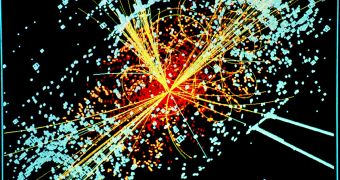Unsurprisingly and long overdue perhaps, the Nobel Prize for Physics this year was awarded for the Higgs boson. UK's Peter Higgs, who gave the particle its name, along with Francois Englert from Belgium, were awarded the prize for the theory behind the boson.
Several physicists laid the theoretical foundation for the boson in the 1960s, but it was only earlier this year that scientists working at the Large Hadron Collider at CERN announced the discovery of a Higgs-like particle which, so far, has most of the characteristics of the theoretical particle.
The Higgs boson and the Higgs field associated with it represented the one area of the Standard Model, currently the mathematical construct that best explains our universe at the particle level, that still needed to be proven experimentally.
With the Higgs boson's existence now clear, physicists can proceed to expand our theoretical understanding of the universe and find "new" physics knowing they have a solid foundation to build upon.
There has been a lot of speculation around the Nobel Prize and the Higgs boson ever since the first results out of the LHC came out. However, the Royal Swedish Academy of Sciences usually awards prizes for things that are largely proven and have stood the test of time.
Last year, the Higgs boson was too new and still too uncertain. In fact, even now, the award didn't go to the experimental physicists that discovered the boson at CERN, but rather to the two people associated with the initial theory.
In fact, for a long time, it wasn't a certainty that the two creators of the theory would get to see it validated in their lifetimes. Proving that the Higgs boson exists takes a huge amount of energy and very precise equipment. It was only with a joint effort by several countries that the LHC was built, a particle accelerator capable of generating the conditions necessary for the Higgs boson to be created, conditions similar to those in the first instants after the Big Bang.

 14 DAY TRIAL //
14 DAY TRIAL //